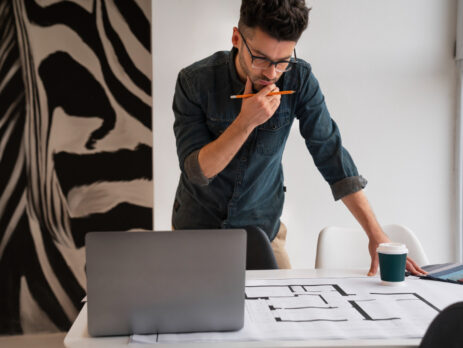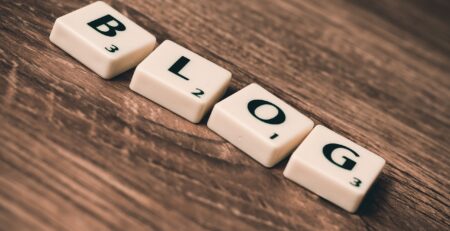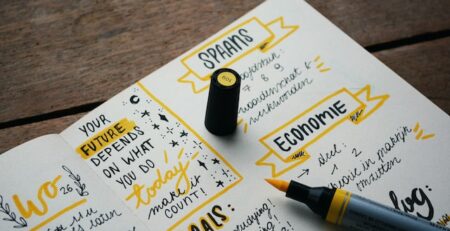Why Your Startup Needs an Industrial Designer to Stay Competitive
In today’s rapidly evolving market, startups face immense challenges and fierce competition. Standing out and staying ahead requires not just innovative ideas but also strategic execution. One pivotal role in this process is that of an industrial designer. Industrial designers are not just artists or engineers; they are the bridge between form, function, and user experience. Their involvement can significantly elevate a startup’s offerings and position it strongly in the market.
Firstly, industrial designers bring a deep understanding of user experience (UX) which is crucial for any product or service. They focus on making products not only functional but also enjoyable and easy to use. This user-centered approach can lead to higher customer satisfaction and loyalty, which are invaluable for a startup’s growth and reputation.
Secondly, industrial designers contribute to the innovative aspect of product development. They help in ideating, prototyping, and refining products based on market needs and technological advancements. This capability is essential for startups that need to innovate continuously to stay relevant.
Thirdly, the aesthetic and ergonomic design of products developed by industrial designers can significantly enhance brand perception. A well-designed product that appeals to consumers can set a startup apart from its competitors and can be a powerful tool for brand positioning and marketing.
Moreover, industrial designers also help in making products more adaptable to market changes. They have the foresight and skills to anticipate market trends and design products that can easily evolve. This adaptability can be crucial for startups that need to pivot quickly in response to new opportunities or challenges.
Lastly, cost efficiency is another critical area where industrial designers contribute significantly. Through smart design choices and materials selection, they can help reduce manufacturing costs while maintaining or enhancing product quality. For a startup, where budget constraints are often a significant concern, this can provide a much-needed financial relief.
Most Asked Questions About Hiring an Industrial Designer for Your Startup
- How can an industrial designer influence customer satisfaction and loyalty?
- What role does an industrial designer play in product innovation?
- How does industrial design enhance a startup’s brand and market positioning?
- Can industrial designers help startups adapt to market changes effectively?
- How do industrial designers contribute to cost efficiency in product development?
How Can an Industrial Designer Influence Customer Satisfaction and Loyalty?
Industrial designers are pivotal in crafting the end-user experience. Their expertise in ergonomics, aesthetics, and functionality directly impacts how customers perceive and interact with a product. A well-designed product not only meets the needs of users but also exceeds their expectations, leading to enhanced satisfaction and fostering brand loyalty. This is particularly crucial for startups aiming to establish a strong foothold in competitive markets.
For instance, consider a startup specializing in wearable technology. An industrial designer can help create a product that is not only functional but also comfortable and stylish, which are significant factors in user satisfaction. They can employ user-centered design principles to ensure the product aligns with consumer lifestyles and preferences, which increases the likelihood of repeated use and customer retention.
Moreover, industrial designers also play a crucial role in user testing and feedback incorporation. They design prototypes and engage with potential users to gather insights, which are then used to refine products. This iterative process ensures that the final product resonates well with the target audience, thereby enhancing customer satisfaction.
Additionally, the emotional connection that a well-designed product builds can turn first-time buyers into loyal customers. Industrial designers help in creating these emotional touchpoints through thoughtful design elements that reflect the brand’s values and message, further enhancing customer engagement and loyalty.
Furthermore, in today’s market, where consumers are increasingly aware of environmental impacts, industrial designers can also contribute by designing sustainable products. This not only meets the ethical expectations of consumers but also builds a positive brand image, contributing to long-term customer loyalty.
Overall, the influence of industrial designers extends beyond mere aesthetics; they create comprehensive user experiences that are crucial for customer satisfaction and loyalty, providing startups with a competitive edge in crowded markets.
For more insights on enhancing employee and customer relations, consider reading about building trust between managers and employees.

What Role Does an Industrial Designer Play in Product Innovation?
Industrial designers are integral to the innovation process within startups, offering a blend of creative vision and practical skills that drive the development of groundbreaking products. Their role often begins with extensive research into market trends, consumer behaviors, and emerging technologies, which informs the ideation phase where new product concepts are born.
Through sketching, modeling, and prototyping, industrial designers not only bring ideas to life but also test their feasibility. This hands-on approach in the early stages of product development is crucial for identifying and solving potential problems, saving time and resources before moving to mass production.
Moreover, industrial designers apply their knowledge of materials and manufacturing processes to innovate cost-effectively. This is particularly important for startups that need to manage limited budgets without compromising on the quality or uniqueness of their products.
Collaboration is another significant aspect of their role. Industrial designers often work closely with engineers, marketers, and product managers to ensure that the product aligns with business goals and market needs. This interdisciplinary approach fosters a culture of innovation, pushing the boundaries of what’s possible within the startup.
The impact of industrial designers on innovation is not just limited to product features or functions. They also contribute to innovative user interfaces and user experiences, enhancing the overall usability and appeal of products, which can be a key differentiator in the market.
For startups aiming to disrupt markets or create entirely new categories of products, industrial designers are invaluable. They bring a unique blend of creative and analytical skills that can translate complex problems into elegant, innovative solutions that resonate with users and stand out in the marketplace.
Discover more about fostering innovation during challenging times at Innovation During Market Downturn.
How Does Industrial Design Enhance a Startup’s Brand and Market Positioning?
Industrial design is a critical tool for startups not only in product development but also in carving out a unique brand identity and strong market positioning. A well-executed industrial design can communicate a startup’s values, mission, and vision through physical form, which can be a powerful differentiator in a crowded market.
The aesthetic appeal of a product, which is largely influenced by its design, often forms the first impression for potential customers. A design that is both innovative and aligned with consumer expectations can significantly enhance brand perception, making it more likely for consumers to consider the product.
Beyond aesthetics, the functionality and usability of a product, shaped by industrial design, also reflect on the brand. Products that are easy to use and meet the practical needs of consumers can lead to positive user experiences, which are directly tied to brand reputation.
Moreover, industrial design can also contribute to a startup’s storytelling. Through thoughtful design elements that reflect a company’s ethos, products can tell a story that resonates with consumers, thereby deepening emotional connections and enhancing brand loyalty.
Strategically, industrial design helps in positioning a product within the market. By understanding competitive offerings and consumer needs, industrial designers can create products that fill gaps in the market, meet underserved needs, or exceed existing solutions, helping to position the startup as a leader in innovation.
For startups looking to expand into new markets or demographics, industrial design can be tailored to meet diverse consumer preferences and cultural expectations, further aiding in effective market positioning.
In conclusion, industrial design is not just about creating a product that looks good and works well; it’s about crafting a market identity that speaks to consumers and stands out from the competition. For startups, where resources are limited and the need to quickly establish a market presence is critical, effective industrial design can be the difference between blending in and standing out.
Learn more about effective branding strategies at Embracing the Underdog Brand.
Can Industrial Designers Help Startups Adapt to Market Changes Effectively?
Adaptability is crucial for startups, given the fast-paced and often unpredictable nature of markets. Industrial designers, with their unique blend of creative and technical skills, play a critical role in helping startups navigate and adapt to these changes effectively.
One of the key ways industrial designers aid in adaptability is through their forward-thinking approach to design. They are trained to anticipate future trends and user needs, which allows them to design products that can easily evolve as market conditions change. This proactive approach can give startups a significant advantage, enabling them to pivot or adapt products without undergoing a complete overhaul.
Furthermore, industrial designers employ a user-centered design process that involves continuous feedback and iteration. This process ensures that products remain relevant and desirable to users, even as their preferences and behaviors change over time.
Industrial designers also contribute to a startup’s flexibility through modular or scalable design practices. By creating products that can be easily upgraded, expanded, or customized, they allow startups to respond to new opportunities or customer demands quickly and cost-effectively.
In addition to product design, industrial designers can also help startups adapt their production processes and supply chains for greater efficiency and responsiveness. Their deep understanding of materials and manufacturing techniques can lead to innovations that streamline production and reduce dependency on specific suppliers or resources, which is particularly valuable in times of supply chain disruption.
Overall, the ability of industrial designers to integrate adaptability into product design and development processes makes them invaluable partners for startups. They not only help in responding to immediate market changes but also in building a foundation for sustained innovation and growth in the long term.
How Do Industrial Designers Contribute to Cost Efficiency in Product Development?
Cost efficiency is a critical concern for startups, where resources are often limited and the pressure to deliver is high. Industrial designers play a crucial role in ensuring that product development is not only creative and user-focused but also cost-effective.
One of the primary ways industrial designers contribute to cost efficiency is through material selection and optimization. They possess specialized knowledge about various materials and their properties, which allows them to choose the most cost-effective options without compromising on quality or performance.
Additionally, industrial designers are adept at simplifying designs to reduce manufacturing complexity and costs. By minimizing the number of parts, simplifying assembly processes, or integrating functions into fewer components, they can significantly lower production costs.
Furthermore, the iterative design process employed by industrial designers, which includes prototyping and user testing, helps in identifying and resolving issues early in the development phase. This proactive approach prevents costly revisions and product recalls after launch, ensuring a smoother and more economical production process.
Industrial designers also contribute to cost efficiency by designing for scalability. Products designed to be easily scalable can adapt to increased demand without significant changes in design or production processes, which can lead to economies of scale and reduced unit costs over time.
Moreover, by integrating sustainability into product design, industrial designers can not only appeal to environmentally conscious consumers but also reduce costs associated with waste, energy use, and materials. Sustainable design practices often lead to more efficient use of resources, which can be a significant cost-saving aspect for startups.
In conclusion, industrial designers are essential for startups looking to optimize their product development processes for cost efficiency. Their expertise in design, materials, and manufacturing processes ensures that startups can develop innovative, high-quality products within their budget constraints, ultimately contributing to the startup’s financial health and competitive edge.
Conclusion
The role of industrial designers in startups extends far beyond mere aesthetics. They are pivotal in shaping user experiences, driving innovation, enhancing brand value, ensuring market adaptability, and optimizing cost efficiency. As startups navigate the complexities of competitive markets, the strategic inclusion of industrial design can provide them with a distinct advantage.
By focusing on user-centered design, industrial designers help startups connect deeply with their customers, creating products that are not only functional and beautiful but also perfectly aligned with user needs and market demands. This alignment is crucial for building customer loyalty and achieving long-term success.
Innovation, facilitated by industrial designers, allows startups to stay ahead of technological trends and market shifts, continuously delivering solutions that meet or exceed customer expectations. This ongoing innovation is essential for maintaining competitiveness and driving business growth.
Moreover, the strategic impact of industrial design in branding and market positioning cannot be overstated. It enables startups to craft a unique identity and communicate their values effectively, which is vital for capturing and retaining consumer interest.
Additionally, the adaptability and cost-efficiency brought about by industrial design are critical for startups operating in dynamic and often resource-constrained environments. These factors not only aid in managing immediate challenges but also in scaling operations sustainably over time.
Ultimately, the integration of industrial design into a startup’s strategy is not just a beneficial move—it’s a crucial one for those aiming to thrive in today’s fast-paced and innovation-driven market landscape. Startups that recognize and leverage the full spectrum of industrial design’s benefits can enhance their product offerings, streamline their operations, and significantly boost their market presence, setting a solid foundation for lasting success.
In today’s competitive market, finding the right creative and marketing expert can be a challenge. But with icreatives, you’re in experienced hands. With 37 years in staffing and a track record of matching more than 10,000 employees to over 1,000 companies worldwide, we know how to connect you with the best. Plus, you only pay if you hire—there’s no risk, only results.Ready to find your perfect creative or marketing expert? HIRE WITH ICREATIVES today!












